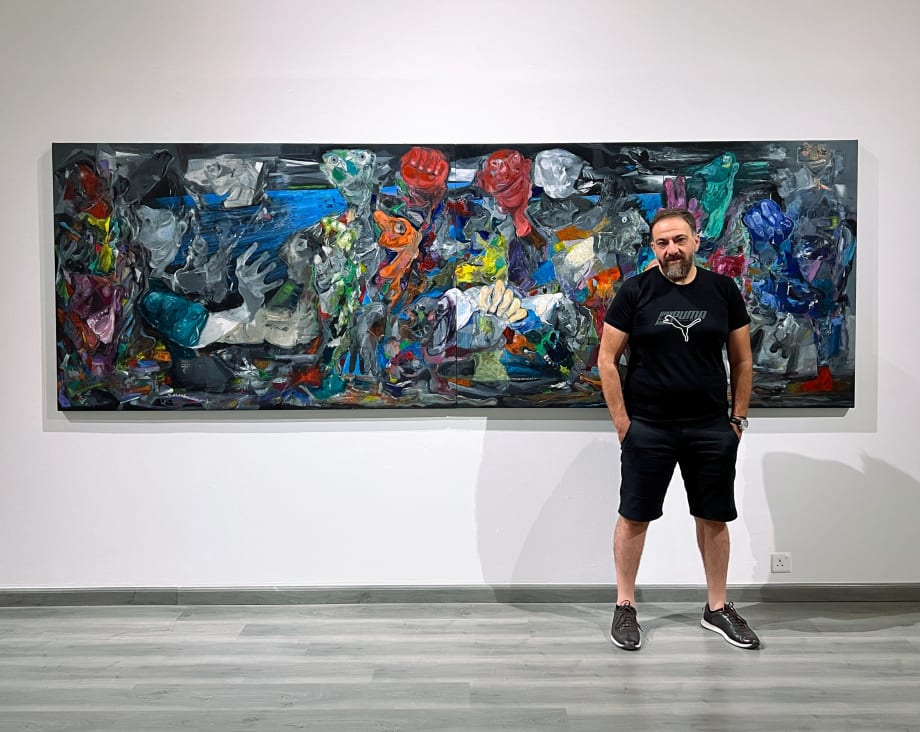Recognized for his abstract expressionist style, Kais Salman employs painting as a potent vehicle for social commentary. Through his visceral gestures and vibrant colors, Salman addresses a wide range of contemporary issues, including political corruption, terrorism, consumerism, cosmetic surgery, religious fanaticism, imperialism, and the voyeurism of the digital age. Satire plays a central role in his practice, emphasizing the normalization of greed, narcissism, and ideological extremism—forces that have gained renewed significance in the 21st century.
Throughout his career, Salman has explored various themes, with figures appearing and disappearing, often merging with landscape elements. By liberating himself from his environment and the politics of everyday life, Salman blends the worlds of the abstract and figurative. Most recently, the figures reemerge so slightly in his gestural application of acrylic paint, serving as a conduit for introspective inquiry into the evolving relationship between humanity and contemporary life.
His dynamic brushwork serves as a visual alarm—expressing the urgency and compelling energy that flow from the artist’s mind, through his fingertips, and onto the canvas. For Salman, painting is more than expression; it is a space where introspection transforms into insight, where questions begin to resemble answers.
A longstanding and influential figure in the region’s contemporary art scene, Salman is now based in Dubai, U.A.E. His practice has evolved in response to his displacement from war-torn Syria. Born in Tartous in 1976, he received his Bachelor of Arts from the Faculty of Fine Arts at the University of Damascus in 2002, where he studied under prominent Syrian artists, including Safwan Dahoul.
His work is part of collections across the Middle East, North Africa, and Europe. He has been featured in The New York Times and The Wall Street Journal, among other international publications, and was listed for the second time in Arabian Business’s “100 Most Powerful Arabs Under 40” in 2016.
Salman has exhibited widely in both solo and group shows, including at Ayyam Gallery Beirut (2018, 2015, 2014, 2012); Ayyam Gallery Al Quoz, Dubai (2022, 2017, 2014, 2011, 2010); Alexandria Biennale (2014); Ayyam Gallery DIFC, Dubai (2014, 2010); Damascus Museum of Modern Art (2009); The Park Avenue Armory, New York (2008); and the Carthage Festival for Coast Mediterranean Sea Artists, Tunisia (2005). His works are held in both private and public collections internationally, including the RAK Art Foundation in Bahrain.
